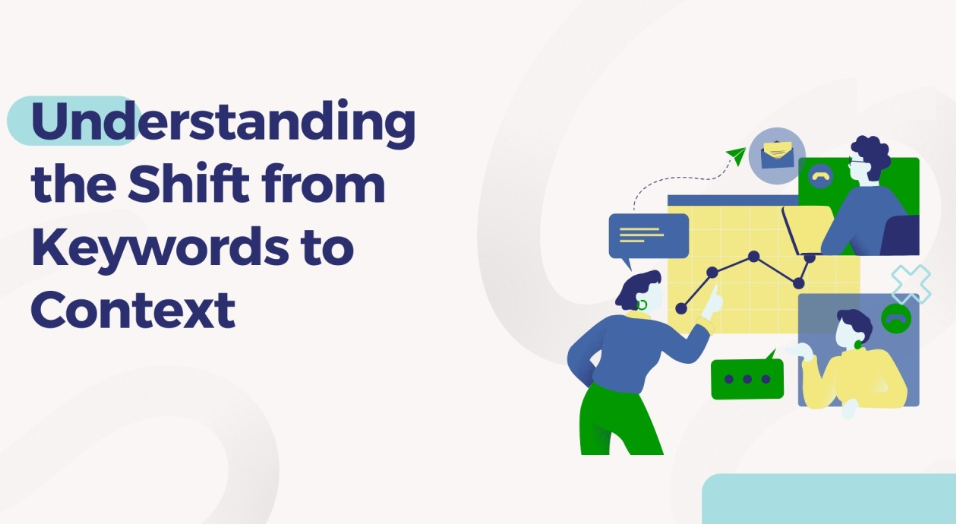Introduction
The way we search online is changing rapidly, thanks to the rise of generative AI. Traditional search engines are giving way to intelligent assistants that understand context, deliver real-time answers, and engage in natural, human-like conversation. At the center of this transformation is Google Bard—an advanced AI-powered search assistant that’s redefining how users interact with information in 2025.
Unlike keyword-based search tools, Bard leverages the power of Google’s Gemini AI to offer context-aware, conversational results tailored to user intent. Whether it’s summarizing research, planning travel, or comparing products, Bard enables users to get rich, personalized answers without hopping across multiple tabs.
This article explores how Google Bard is reshaping the future of generative search—from revolutionizing the user experience and content discovery to impacting SEO strategies and integrating across platforms. As Bard continues to evolve, it signals a bold shift toward a smarter, more intuitive digital search future.
What Is Google Bard?
Google Bard is Google’s revolutionary AI-powered search assistant, designed to redefine how we interact with information online. Launched as part of Google’s broader push into generative AI, Bard utilizes cutting-edge large language models (LLMs)—including the latest Gemini AI—to provide real-time, conversational responses that go beyond traditional search engine results.
Unlike classic search engines that return a list of ranked links based on keyword matching, Google Bard delivers direct, contextually rich answers tailored to the user’s intent. Bard understands natural language queries, processes them using AI-driven contextual analysis, and generates summaries, recommendations, or step-by-step explanations. This makes it ideal for users seeking deeper insights, whether researching complex topics, planning trips, or troubleshooting code.
What sets Bard apart is its seamless integration into Google Search, YouTube, Docs, and other key platforms, allowing users to access AI-generated content directly within familiar workflows. Compared to competitors like ChatGPT or Microsoft’s Bing AI, Bard offers the advantage of real-time internet access, making it more dynamic and updated.
Bard isn’t just a chatbot—it’s Google’s strategic leap into the future of generative search, blending conversational AI with the vast information ecosystem of the web. Whether you’re a student, developer, content creator, or casual user, Google Bard is rapidly becoming the go-to tool for intelligent, efficient, and personalized search experiences.
The Shift from Keyword-Based to Context-Aware Search
For decades, traditional search engines relied on keyword-based algorithms that matched exact terms from user queries to indexed webpages. While effective to a degree, this method often required users to manually refine their searches, sift through multiple links, and guess the right phrasing. In 2025, Google Bard, powered by generative AI, is transforming this approach by introducing context-aware search—a smarter, more intuitive way to access information.
Unlike keyword-based search, context-aware search engines understand the intent, nuance, and semantic meaning behind user inputs. Instead of just scanning for word matches, Bard uses natural language processing (NLP) and large language models like Gemini AI to interpret the full context of a question. This allows it to generate direct, human-like responses, summaries, or even comparisons—removing the need to open multiple tabs or filter through irrelevant content.

For example, when a user asks, “What’s the best AI for developers in 2025?”, Bard doesn’t just return links with those keywords—it understands the user wants a comparison of AI tools like ChatGPT, Claude AI, and Gemini based on features, pricing, and use cases. This level of semantic understanding is what sets AI-powered search engines apart in the era of generative search.
The shift toward contextual and conversational AI search isn’t just a feature—it’s the future. Bard is leading this evolution, offering users smarter, faster, and more relevant answers powered by deep learning and continuous real-time web integration.
Enhanced User Experience with Conversational Search
One of the most groundbreaking aspects of Google Bard is how it redefines the user search experience through conversational AI. Unlike traditional search engines that require precise keywords and often produce a wall of blue links, Bard delivers information in a dynamic, chat-based format that feels more like speaking to a knowledgeable assistant than querying a machine.
This AI chat interface enables users to ask follow-up questions, refine previous queries, or pivot topics without restarting the search process. Whether you’re researching a complex topic like “how Gemini AI compares to ChatGPT” or planning a trip, Bard remembers context within the session—offering fluid, intelligent dialogue that evolves naturally with your needs.
Moreover, Bard incorporates voice-enabled search capabilities and is optimized for mobile users, making it easy to access high-quality information on the go. The responses are personalized, visually formatted, and often accompanied by source citations, summaries, or call-to-action buttons—providing an interactive and visually rich user experience.
Users no longer need to scroll through ten tabs to find one answer. Bard cuts through the clutter, offering direct, reliable insights—especially valuable in industries like education, software development, health, and e-commerce.
Compared to static search results, Bard’s intelligent search assistant delivers a more human, responsive, and accessible experience. It’s not just about getting information—it’s about understanding, convenience, and productivity enhancement. This marks a significant leap in how we discover, learn, and interact with digital content.
Bard’s Impact on SEO and Content Discovery
As Google Bard continues to reshape how users interact with information, its influence on SEO strategies and content discovery is profound. The shift toward AI-generated answers and zero-click search experiences challenges traditional models of content visibility and ranking.
🔍 Changing the Rules of Ranking
In classic search engines, content creators optimized for keyword density, backlinks, and meta tags to climb Google’s ranking ladder. However, Google Bard SEO impact changes this dynamic. Since Bard often pulls answers directly from indexed content and presents them in conversational formats, the focus shifts toward semantic relevance, structured data, and authority signals.
📉 Rise of Zero-Click Searches
With Bard delivering complete answers in the search interface, more users are getting what they need without clicking on websites. This phenomenon—known as zero-click search—is pushing marketers and bloggers to rethink how they attract traffic and encourage engagement beyond just rankings.
Content Must Be Context-Aware
To stay visible, content must now be highly informative, context-rich, and formatted for generative AI. Google favors clear, concise explanations, FAQ-style headings, and content that directly addresses searcher intent.
In the age of generative search optimization, success depends on creating valuable, authoritative content that AI tools like Bard can easily extract and summarize. For creators, the future is not just about keywords—it’s about being the source of trusted answers in an AI-driven ecosystem.
Integrations and Cross-Platform Functionality
What sets Google Bard apart in the competitive landscape of generative AI is its seamless integration across Google’s ecosystem, transforming it into a true cross-platform AI assistant. In 2025, Bard is no longer limited to standalone search—it’s embedded into core productivity tools like Google Docs, Gmail, Sheets, and Google Maps, enhancing user workflows across devices and contexts.
AI in Google Workspace
Within Google Workspace, Bard acts as a real-time collaborator. In Google Docs, it can summarize reports, rewrite paragraphs, or generate outlines. In Gmail, Bard suggests email drafts, tone adjustments, and follow-ups. These features eliminate writer’s block, reduce repetitive tasks, and accelerate communication—making Bard one of the most useful AI productivity tools for professionals, students, and remote teams.
📲 Mobile and Voice Support
Bard is also optimized for mobile and voice-enabled devices. Whether you’re asking for directions in Google Maps or searching product reviews on Android, Bard offers conversational insights in real time. It responds through voice search, making it a powerful companion for users on the go.
🌐 Cross-Platform Accessibility
Unlike competitors limited to single-platform environments, Bard thrives across web, mobile, and cloud-based services. Whether you’re managing a project in Google Sheets, setting reminders in Calendar, or conducting research through Google Search, Bard’s functionality is always within reach.
By embedding Bard into everyday tools, Google ensures it’s not just an AI assistant—it’s a unified productivity enhancer across platforms, redefining how users interact with information, communicate, and make decisions.
Challenges and Ethical Considerations
While Google Bard is transforming search experiences with its intelligent, conversational interface, it also introduces several challenges that demand thoughtful consideration—particularly around ethics, privacy, and information accuracy.
⚠ Misinformation and Hallucinations
Like all generative AI models, Bard is susceptible to hallucinations—producing outputs that sound correct but are factually inaccurate. When users rely on Bard for legal, medical, or technical advice, such misinformation could have real-world consequences. Ensuring information reliability in AI-generated search results is a growing concern.
🔐 Data Privacy and Consent
Bard processes vast amounts of user data to deliver contextual answers. While Google maintains compliance with frameworks like GDPR, concerns remain about data tracking, user profiling, and informed consent. Users must understand what data is being collected and how it’s used to train or fine-tune models.
⚖ Algorithmic Bias and Fairness
Bias in training data can lead to AI bias in search results, disproportionately representing certain perspectives or demographics. As Bard becomes a primary information gatekeeper, promoting algorithmic fairness and transparency is vital.
✅ Responsible AI Deployment
To mitigate these risks, Google is investing in responsible AI practices, including robust testing, ethical guidelines, and model interpretability tools. However, the responsibility also lies with users, educators, and policymakers to critically evaluate AI-generated content and demand accountability.
As Bard’s influence grows, so does the importance of ethical AI use—ensuring the technology enhances access to knowledge without compromising trust or human judgment.
The Future of Generative Search
The rise of generative AI is rapidly steering the evolution of how we search, learn, and interact with information. As one of the most advanced AI tools in 2025, Google Bard is setting the stage for what the future of search engines will look like—intelligent, conversational, and highly personalized.
Unlike traditional algorithms that prioritize link-based indexing, future AI-driven search will rely on user intent, behavior, and contextual understanding. Bard’s integration with the Gemini AI model allows it to understand nuanced queries, remember session history, and offer multi-step solutions—all of which point to a more predictive and proactive search experience.
Upcoming enhancements in personalized AI search will likely include deeper integration with personal data (emails, files, browsing habits), enabling Bard to deliver tailored suggestions before users even ask. This shift will redefine search as a dynamic interaction rather than a static query-response process.
Furthermore, we can expect next-gen search technology to incorporate multimodal capabilities—combining text, images, video, and even voice prompts—to deliver richer, more intuitive results. Google’s ongoing research in ethical AI, multilingual support, and cross-device synchronization positions Bard as a long-term leader in this transformation.
Ultimately, generative search is not just a trend—it’s a paradigm shift. As Bard evolves, it will continue to bridge the gap between information and understanding, shaping the way individuals and organizations navigate the digital world.
Conclusion
Google Bard is at the forefront of a transformative era in digital search, moving beyond keyword matching to deliver conversational, context-aware, and AI-powered search experiences. By leveraging generative AI and deep integration with Google’s ecosystem, Bard offers users faster, smarter, and more personalized access to information.
From revolutionizing content discovery to reshaping SEO strategies, Bard is not just enhancing how we search—it’s redefining what search means. While challenges around privacy, bias, and accuracy remain, Google’s commitment to ethical AI development continues to guide Bard’s evolution.
As we look ahead, Bard stands as a symbol of the future of search engines—interactive, intelligent, and user-first. Whether you’re a student, developer, marketer, or everyday user, embracing tools like Bard will be essential in navigating the next wave of the AI-powered internet.



